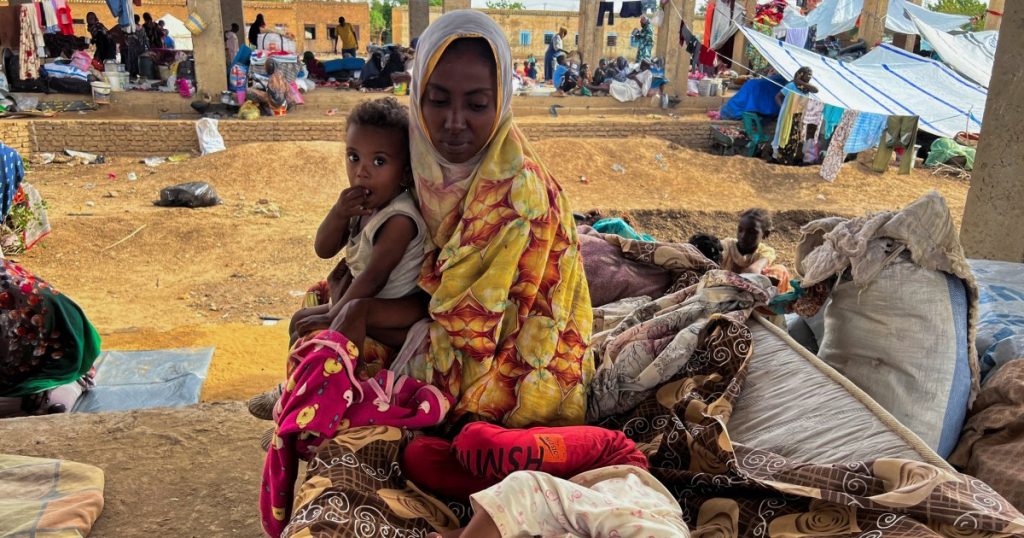US envoy says talks to end the 15-month war will launch in Geneva on Wednesday, even if Sudan’s army does not attend.
Talks to end Sudan’s 15-month war between the Sudanese Armed Forces (SAF) and the paramilitary Rapid Support Forces (RSF) will move forward in Geneva this week, United States Special Envoy Tom Perriello has said, as the United Nations warns of a “cataclysmic breaking point” in Sudan.
The US last month invited Sudan’s warring sides to hold ceasefire talks in Switzerland, more than a year after fighting broke out between the army and the RSF.
While the RSF has agreed to US-mediated talks, Sudan’s army leader General Abdel Fattah al-Burhan had said the military will not join talks.
“We will not retreat, we will not surrender and we will not negotiate,” al-Burhan told troops at the time.
Al Jazeera’s Hiba Morgan, reporting from Khartoum on Monday, said the talks will start on Wednesday regardless of whether the Sudanese army attends or not.
“[The US special envoy] made it very clear this would be a launch of the process … not the start of ceasefire talks itself. He said there were several other countries and bodies that are involved in the process of trying to bring together the Sudanese army and the RSF in talks in Geneva to halt the fighting,” Morgan said.
“The Sudanese army has made it clear that there are certain conditions that need to be met and the Sudanese government has also made that clear. They say that they want a guarantee that the Jeddah agreement which was signed between the Sudanese army and the RSF in Jeddah last year will be implemented by the RSF.
“They say they want their representation in Geneva to be as a government and not as the Sudanese army and that seems to be a way of the government asking for legitimacy.”
On Monday, International Committee of the Red Cross (ICRC) President Mirjana Spoljaric Egger said she hoped this week’s scheduled talks would result in solid humanitarian steps and remove obstacles blocking a ceasefire.
She described the situation in Sudan as a “humanitarian disaster”.
“We are not part of these talks, but I do hope that they will find agreements that will allow us to increase humanitarian assistance, that will allow us to have more access to affected populations, especially in the north of Darfur the situation is extremely concerning,” she told a press conference at the ICRC headquarters in Geneva.
Speaking at an event marking the 75th anniversary of the Geneva Conventions, she called for “very concrete humanitarian steps that will help build the trust, and will help remove some of the immediate obstacles for a ceasefire agreement”.
‘Breaking point’
Meanwhile, the UN migration agency warned that Sudan is at a catastrophic “breaking point”, with tens of thousands of preventable deaths looming due to multiple crises.
The International Organization for Migration (IOM) said famine and floods were adding to a catalogue of challenges facing millions of people in the war-torn country, amid the world’s largest displacement crisis.
“Make no mistake: these conditions will persist and worsen if the conflict and restrictions on humanitarian access continue,” Othman Belbeisi, IOM’s Middle East and North Africa director, said in a statement on Monday.
“Without an immediate, massive, and coordinated global response, we risk witnessing tens of thousands of preventable deaths in the coming months. We are at breaking point – a catastrophic, cataclysmic breaking point.”
War has raged since April 2023 between the Sudanese army under Abdel Fattah al-Burhan and the RSF, led by his former deputy Mohamed Hamdan “Hemedti” Dagalo.
The conflict has left tens of thousands dead, according to the UN.
The IOM said new figures showed more than 10.7 million people are internally displaced within Sudan, with many uprooted several times over. Meanwhile 2.3 million have fled across the borders into neighbouring countries.

